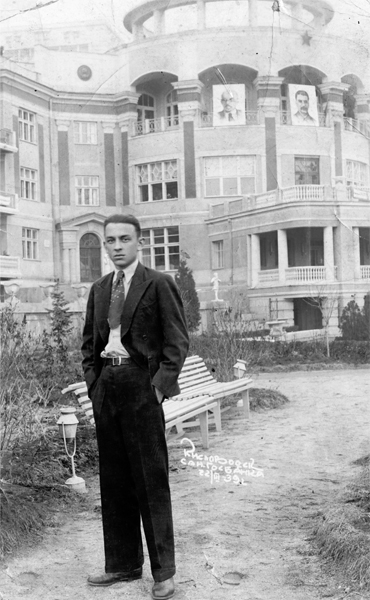With the 70th anniversary of the end of the Great Patriotic War (Second World War) just around the corner, I've been enjoying a lot of colorized photographs from around the web featuring the USSR at home and at the front.
The latter was responsible for 80% of German losses. The Allies could not have opened up the second front had the USSR not taken the brunt of the German military-industrial machine. At the same time, my homeland lost over 26 million people, of which approximately 20 million were civilian. The totality of this experience has become a consolidating event of mythic proportions.
This myth (not in the sense of being untrue, but rather surpassing the possible) comprises a multitude of small bricks, as this war affected every Soviet family. Thus, I, too, was inspired to colorize some photographs of my grandparents, tinting their cheeks with subtle, but living color and bridging the gap between the past and the present.
The end of the war forced the winners to sit down and, despite loathing each other's ideology, they had to come up with mutually agreed upon rules. This system is collapsing now, and new challenges are ahead.









